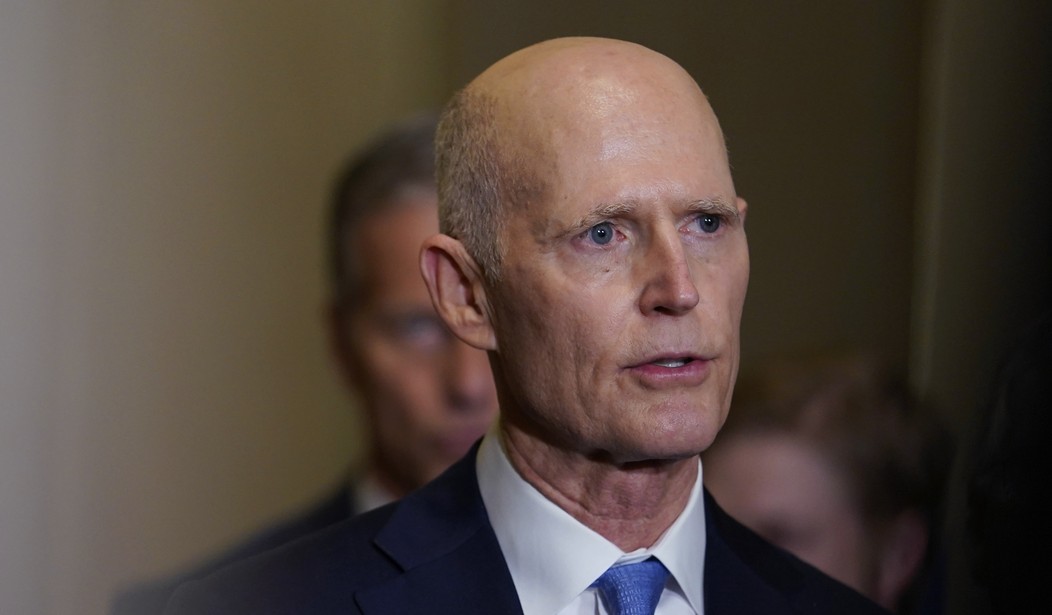An effort in Congress would increase transparency and accountability in the $42.5 billion Broadband Equity, Access, and Deployment (BEAD) Program, helping to ensure taxpayer dollars are more wisely spent to expand high-speed internet across the United States.
The Broadband Buildout Accountability Act would remove an exemption in BEAD that allows the National Technology Information Administration (NTIA) to avoid releasing information under the federal Freedom of Information Act (FOIA). That bill, sponsored by Sen. Rick Scott (R-Fla.) and Rep. August Pluger (R-Texas), would require proof on how the BEAD money is spent. This legislation is sorely needed, as a recent Senate Commerce report has already found the program potentially favors duplicative and wasteful projects.
“This is not the government’s money, it is the hard-earned dollars of American taxpayers and they should know exactly how every cent is being spent,” Scott said. “Our Broadband Buildout Accountability Act will increase transparency and help ensure this taxpayer money is spent with maximum accountability and return on investment. Spending taxpayer dollars should be a crystal-clear process. I urge my colleagues to support this bill, which increases government accountability and transparency to Americans everywhere.”
The Senate bill was referred to the Committee on the Judiciary, while the House version was referred to the Committee on Energy and Commerce.
In addition to other wasteful and duplicative projects listed in the Senate Commerce report, BEAD also prioritizes government-owned networks (GONs) over privately owned networks. GONs often hemorrhage money and leave taxpayers or utility ratepayers on the hook for the debt.
Recommended
BEAD is the largest portion of $65 billion that Congress authorized for broadband infrastructure under the Infrastructure, Investment and Jobs Act (part of a $350 billion total spending package in that bill). Even more taxpayer money is now going toward high-speed internet under other programs, as detailed in the Taxpayers Protection Alliance’s (TPA) recent report, “GON with the Wind II: Frankly, Taxpayers Do Care.”
With an unprecedented amount of taxpayer money now being funneled into broadband infrastructure projects, it is integral that taxpayers know how that money is being spent. Such transparency will help minimize waste, fraud, and abuse in the various broadband programs.
Already, there are concerns that the sheer amount of grants being handed out will lead to overbuilding. The NTIA, at least, has created a fairly robust challenge process to help determine where service exists and where it will be provided with the BEAD grants. The administration is requiring states to maintain online portals where local governments, Native American tribal entities, nonprofits and service providers can dispute a state’s claim whether an area is unserved or underserved, Broadband Breakfast reported.
Despite the Federal Communications Commission still using download speeds of 25 Megabits per second and upload speeds of 3 Megabits per second as the broadband standard, Congress set the level for an area to be considered underserved as 100/20. This will make many more locations eligible for funding under BEAD.
Clarity seems to be a problem not just with BEAD, but also other taxpayer-funded initiatives.
As Technology Policy Institute President Scott Wallsten noted in a recent Broadband Breakfast op-ed, the Capital Projects Fund, distributed from the 2021 American Rescue Plan Act (ARPA), could be a “$10 billion black hole.”
Wallsten pointed out that the U.S. Treasury, hardly a regular grant-making agency, is directed by Congress to distribute these ARPA funds. The Treasury just gave California more than $500 million out of the fund, with the only information about the money a “press release that more closely resembles a flyer,” he wrote.
Wallsten notes that other state awards on the Treasury website are similarly lacking in detailed information.
“At a bare minimum, the public should be able to see the plan each state submitted to the Treasury and the final plan the agency approved,” Wallsten wrote. “That might make it possible for researchers and watchdogs like the Government Accountability Office to evaluate the program — not only to see how well it worked, but to inform other broadband grant programs. Unfortunately, these plans do not appear to be available to the public.”
It would have been preferable for more safeguards to have been placed on the tens of billions of dollars in new taxpayer money now being distributed to close the digital divide, but the horse is already out of the barn. At the very least, Congress can implement measures like the Broadband Buildout Accountability Act to increase visibility of the process.
Johnny Kampis is director of telecom policy for the Taxpayers Protection Alliance.
























Join the conversation as a VIP Member